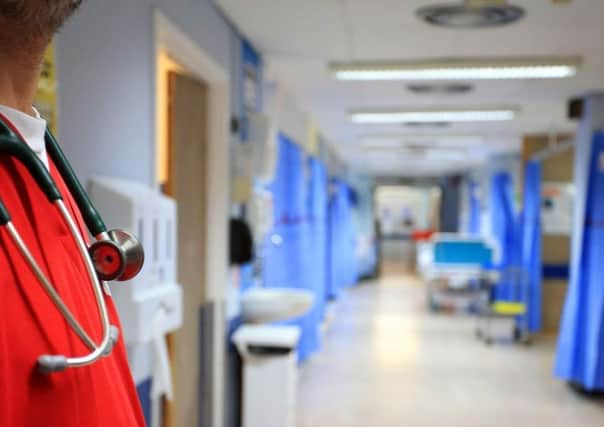1 in 6 Morecambe Bay patients get cancer diagnosis after trip to A&E


Public Health England says people with the disease stand a much slimmer chance of surviving when their diagnosis comes via an emergency admission, compared to other routes.
Cancer Research UK says people with unusual or persistent symptoms should be able to seek early help more easily. In 2018, 1,989 patients were admitted to hospital with cancer in the NHS Morecambe Bay CCG area, the latest Public Health England data shows.
Advertisement
Hide AdAdvertisement
Hide AdOf them, 326 (16%) were admitted as an emergency, rather than through routes such as screening programmes or routine GP referrals.
Patients diagnosed in this way are more likely to have more advanced and difficult to treat cancers.
Dr Jodie Moffat, head of early diagnosis at Cancer Research UK, said GPs have made huge efforts to improve early diagnosis by referring more people with suspected cancer symptoms to be seen at hospital within two weeks.
“But significant numbers of people still continue to be diagnosed with cancer after they’ve turned up at A&E,” she added.
Advertisement
Hide AdAdvertisement
Hide AdNeil Wynne, Cancer Commissioning Manger for Morecambe Bay Clinical Commissioning Group said: “The CCG recognises the importance of early diagnosis in improving cancer survival rates and continues to address this through several initiatives.
“Ongoing analysis of patients who do present with cancer takes place to identify learning opportunities, which support earlier diagnosis for future patients, particularly around subtle or ‘vague’ symptoms.
“Our screening partners seek to maximise the benefits screening can bring to earlier detection through proactive engagement with individuals who currently choose not to attend screening invites, this engagement has delivered an increase in breast screening uptake.
“We also continue working with our health and social care partners through the Lancashire and South Cumbria Cancer Alliance to encourage patients to recognise suspicious symptoms.
Advertisement
Hide AdAdvertisement
Hide Ad“Awareness has been raised through campaigns, such as Blood in Pee for bladder and kidney cancers as part of The Be Clear on Cancer initiative. “Furthermore, by encouraging those who are referred for further investigation to follow up in a timely manner we are helping to achieve an early diagnosis of cancer. Together we aim to reduce the frequency of late presentation.”